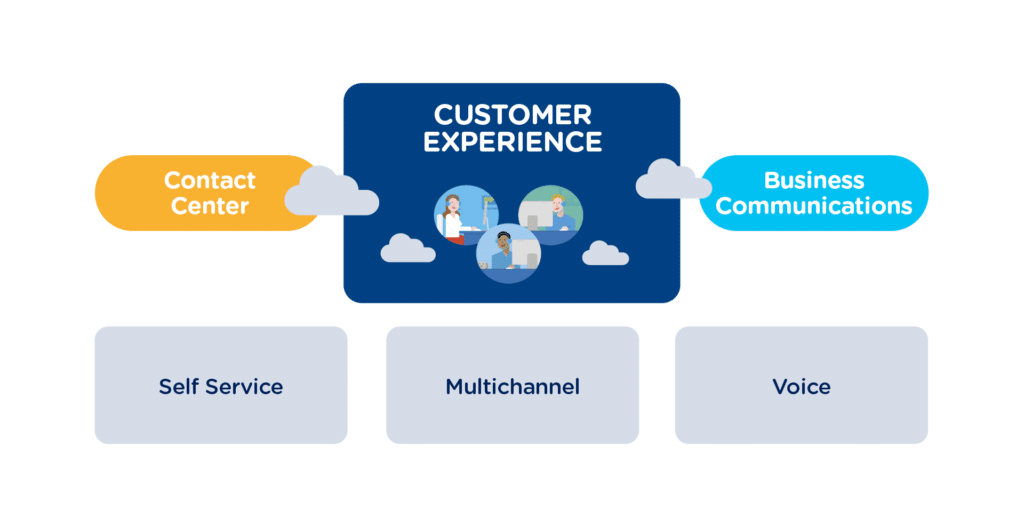Do you know The Future of Customer Service: Conversational? Customer assistance is currently going through a significant, permanent overhaul. Support groups are having trouble keeping up with the volume of conversations. In addition, while 73% of support leaders claim that customer expectations are rising, only 42% are confident that they are achieving those goals, according to a poll we conducted.
Most support teams had to choose between keeping things personal with clients or becoming more efficient until recently. Remaining personnel required providing pricey, impractical services like 1:1 phone conversations or round-the-clock real-time chat. Efficiency meant using impersonal forms and “do not reply” emails to divert client complaints.
Support that was formerly deemed adequate is no longer adequate. Becoming conversational is a new customer experience movement that will have significant effects on customer care.
Read More: 8 Trends that will Shape the Future of Education in the World
Explore the Contents
How to design a support experience that’s conversational
Conversational, messenger-based experiences are the next-generation method of bridging the gap between what customers demand and what support teams can actually provide. They let support teams stay ahead of known problems, automatically respond to repetitive questions, and swiftly address complicated issues while giving clients the speedy, individualized service they require.
Contrary to earlier messaging support tools, conversational support is much more than live chat. By utilizing the power of automation and bots, it offers a support experience that aids businesses in improving customer relationships, streamlining procedures, and maintaining high CSAT (customer satisfaction) scores.
Designing a conversational assistance experience requires adhering to a precise framework with three levels of support. By doing this, you can be confident that you’re not merely opening the door to a deluge of client enquiries but rather providing your support staff with the tools they need to provide quick, individualized assistance while reducing personnel, budget, and hours worked.
The Future of Customer Service

Proactive support, your first line of defense.
Getting ahead of known difficulties before they reach your support team and preventing problems from happening in the first place are two benefits of proactive support. You can inform clients of problems like delivery delays, faults in your product, or website outage using proactive support solutions like outbound messages or banners. Using tools like product tours, you can also onboard and educate new clients, ensuring that they are prepared to succeed right away and capable of overcoming common challenges like customizing your app or installing it on a mobile device. The amount of discussions that reach your staff can be significantly reduced with proactive assistance, which will also improve customer retention.
Self-serve support that empowers your customers.
How can I change my password? How do you handle cancellations? For your employees, responding to such straightforward, repetitive inquiries can feel like Groundhog Day. It takes a lot of time, and it depletes both resources and morale severely. Self-serve support scales your help while meeting the needs of your clients for speed and control. Use chatbots and FAQ knowledge libraries to swiftly respond to clients’ routine, basic queries. This enables you to offer consumers the quick, instantaneous responses they require without increasing your headcount or taxing your support staff.
Human support for complex conversations.
Many client inquiries require an empathic response or can only be addressed by a human. Not all responses can or should be automated because even the greatest chatbots can’t solve complex problems, placate irate customers, or establish connection with valuable clients. Any effective support strategy must include human support, but in practice, it is expensive to run and does not scale. Instead, reduce the workload on your staff so they can concentrate on high-value, challenging inquiries that call upon their understanding of the product, technical proficiency, and empathetic abilities, such as problems with VIP clients, emotionally charged complaints, and sophisticated troubleshooting challenges. This makes it easier for your staff to give the correct clients the premium, prompt, personalized care they need.
Read More: Web3: The Future of the Creator Economy
Turn your support team into revenue drivers
With the aforementioned structure in place, your support team is no longer bogged down by the daily task of creating a sound baseline for efficiency and customer experience. Instead, they serve a more important purpose by increasing revenue. They may now concentrate on reducing customer churn, assisting VIP clients in succeeding, and resolving complex technical problems. This eventually enables them to concentrate on proactively increasing the company’s bottom line and fostering greater client loyalty.
The customer support position changes significantly when interactions are based on conversations. Customer support agents can now be value drivers who focus on resolving VIP and complex queries, with the opportunity to expand to proactive support, learn new skills, partner with other teams, and most importantly, grow their careers through specialization. Instead of being a cost center with siloed work and a lack of career growth opportunities, customer support agents can now be value drivers who focus on resolving repetitive questions and providing reactive support.
The main reason is that conversational customer experiences are advantageous to your support employees as well as your consumers. Support staff may break out of reactive support and have more time and resources to become strategic, revenue-generating company partners while customers receive quick and individualized service. In reality, everyone benefits from the scenario.



